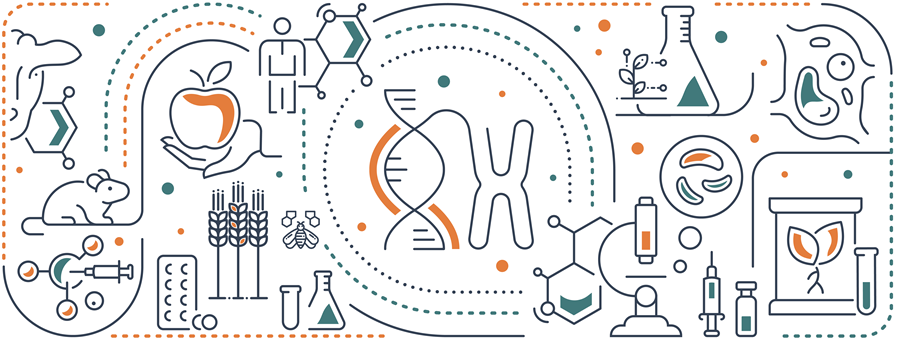
Two Calyxt TALEN gene-edited products in the marketplace
Every day, our researchers at the Non-GMO Project monitor the rapidly changing GMO landscape, including development and commercialization of GMOs by over 400 companies. Two recent announcements caught our eye, in part because they could have implications for the supply chain. These products may potentially be marketed and sold as non-GMO. Please note, however, that products using gene-editing techniques fall squarely into the Non-GMO Project Standard’s definition of GMOs.
ADM buys 4 million bushels of TALEN gene-edited high-oleic soybean grain
Calyxt, the developer of the gene-editing tool TALEN, announced the sale of its entire 2020 high-oleic soybean grain to crusher ADM. Totaling over 4 million bushels, the sales began in Q3 2020 and will continue into late 2021. This high-oleic soy was launched in 2019 as the “first commercially approved gene-edited crop in the U.S.” ADM will crush the grain and sell the resulting oil and meal. These products may potentially be marketed and sold into the supply chain as non-GMO, as neither Calyxt nor ADM is required to label them under NBFDS.
S&W Seed Company licenses TALEN gene-edited alfalfa
Calyxt also recently announced an exclusive trait license agreement with S&W Seed for an improved-quality alfalfa seed in the U.S. and other select areas. The gene-edited alfalfa seed will be branded IQ Alfalfa (IQA) and sold as part of the S&W Seed portfolio. Calyxt and S&W Seed began collaborating to develop an alfalfa using the TALEN technology in 2015. Proof-of-concept trials will begin in 2021. In the U.S., S&W Seed Company markets its alfalfa as the Alfalfa Partners brand. Like the soybean grain, this alfalfa may potentially be marketed and sold as non-GMO.
According to Jim Blome, Calyxt CEO, these agreements are key steps “in monetizing our proprietary gene-editing technology” and executing go-to-market strategies. Calyxt says it uses its TALEN gene-editing technology to “revolutionize the way the world uses plants to solve problems.”
The Non-GMO Project’s Standard defines all crops and products developed using biotechnology, including new gene-editing techniques, as GMOs. We share this information to further one of the Project’s primary goals of creating greater transparency in the supply chain, ensuring you have the information you need to make the best choices for you, your brand, and your family.
Please note that the information herein is for general informational purposes only and is based on the linked sources above.
